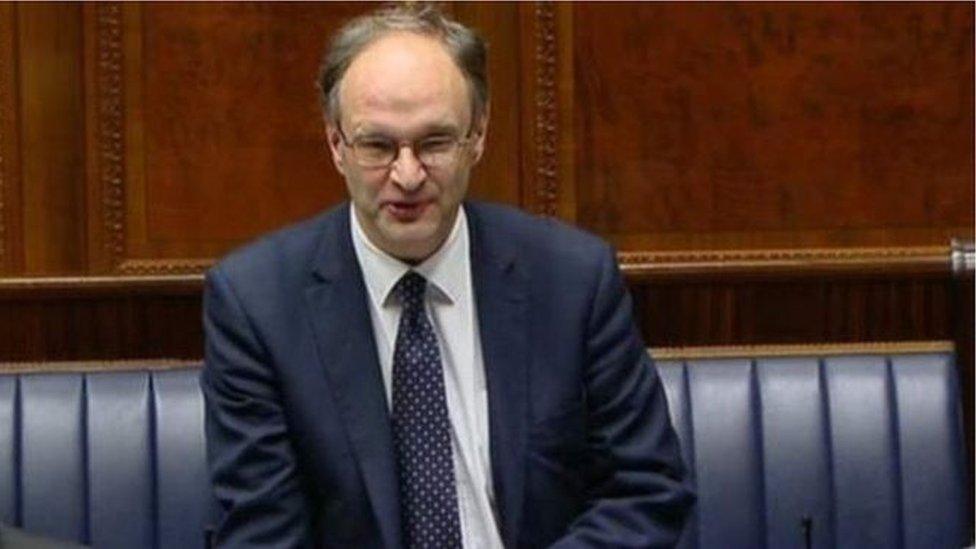NI Education: Money dominated the 2017 headlines
- Published
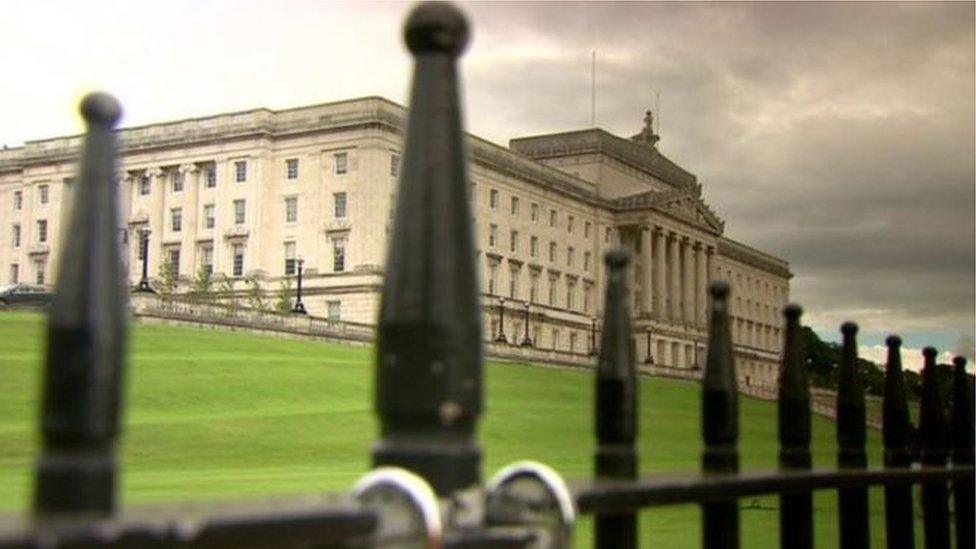
The collapse of government at Stormont created financial problems in education throughout the year
No ministers for most of the year and less money.
That was the case for many government departments in 2017, but financial problems in education regularly hit the headlines.
By November, 375 principals had written an unprecedented letter to the secretary of state over budget cuts.
That was the culmination of a campaign by school leaders that began in April when an initial 40 principals said they would not shed staff to stay within budget.
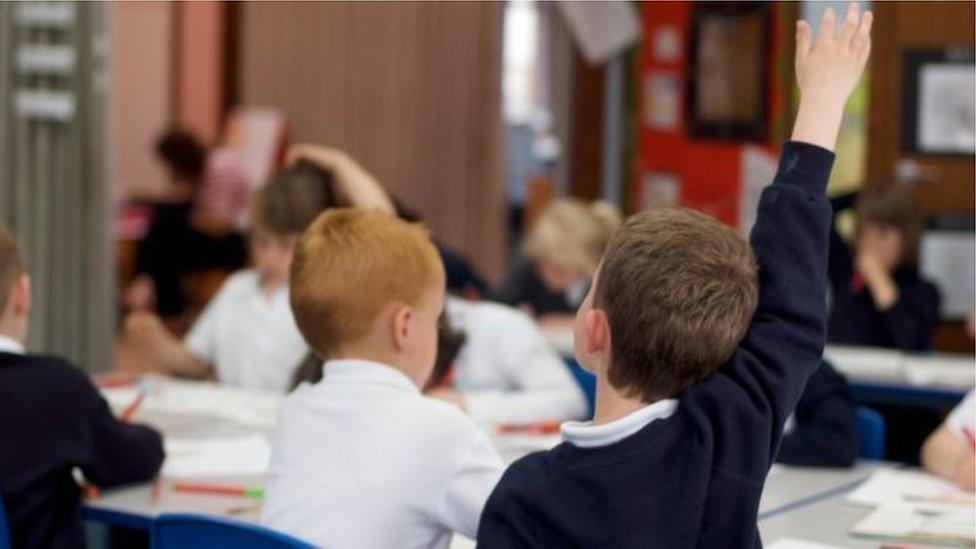
It has been warned that hundreds of schools will be in the red by the end of the decade
He revealed in meetings with principals that almost 400 schools would be in budget deficit in 2017/18 - the highest number ever.
After health, education is the biggest Stormont department with a budget of about £1.9bn.
However, closing schools and cutting teachers' jobs is the only way to make significant savings.
Moves like this take time, would happen when pupil numbers are rising and would also be unpalatable to many people who would want their local school to stay open.
Other money-saving measures were suggested in a Department of Finance briefing paper just before Christmas.
University cuts
Those included controversial measures like scrapping educational maintenance allowance and ending free school transport for many pupils.
But, they are decisions that would have to be taken by an executive - which we do not currently have - or a direct rule minister.
In higher education, Queen's University and Ulster University (UU) have continued to lobby for more money from either the public purse or from student tuition fees.
The lack of an economy minister prevents a quick resolution to either of those demands.
As a result, UU said it faced "critical" funding cuts from the Department of the Economy (DfE) over the next two years.
Only 58, Professor Johnston was a leading cancer specialist before taking up the post in 2014.
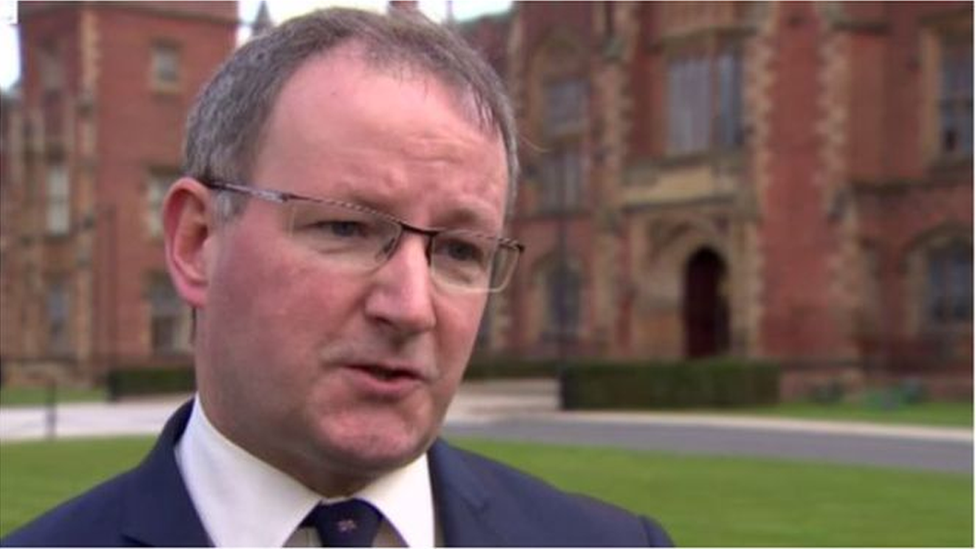
Queen's vice-chancellor Patrick Johnston died suddenly in June
Amid all the gloom, however, our education system still produces many successes.
There was a significant rise in the proportion of Northern Ireland school pupils who got the top A-Level and GCSE grades in 2017.
Some 69% of pupils got at least 3 A-Levels at grades A*-C, compared to 66.3% in 2016.
More than seven in ten pupils, 70.3%, got at least five GCSEs at A*-C including English and Maths, up 2.4% on 2016.
Accolades
The proportion of pupils entitled to free school meals who got 'good' GCSE grades also rose.
The Progress in International Reading Literacy Study (PIRLS) involved 320,000 children in 50 countries.
The good literacy results followed a similar performance in international primary school maths tests in 2016.
There were some school and personal accolades on a UK-wide stage too.
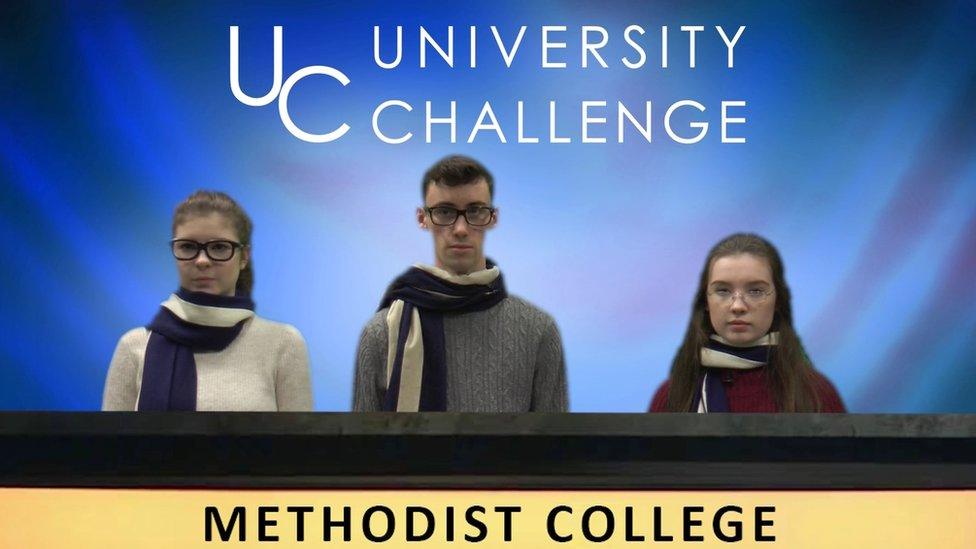
The pupils from Methodist College in Belfast recreated an episode of University Challenge
Portstewart Primary School and St Colum's Primary School were given the 2017 Rolls Royce Eden Award for a shared education science project.
Plenty of good work like that will continue in 2018 - but as it currently costs more money to run our education system than there is to pay for it, it is likely that balance sheets will continue to dominate school life again in the new year.
- Published5 December 2017
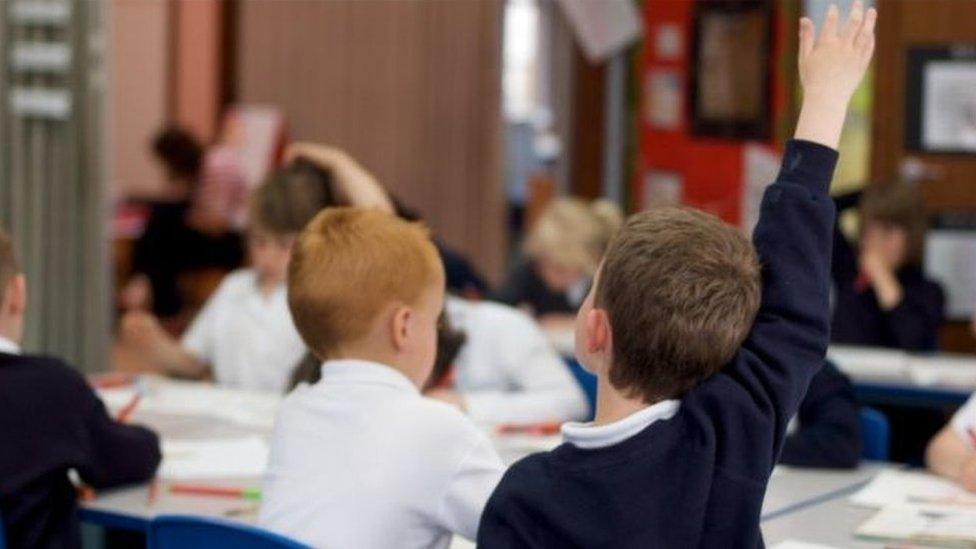
- Published25 January 2017
